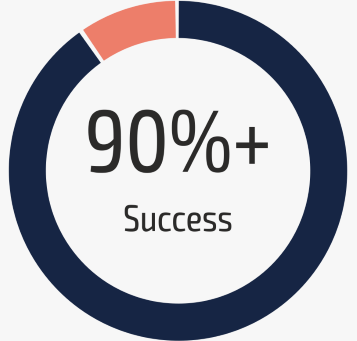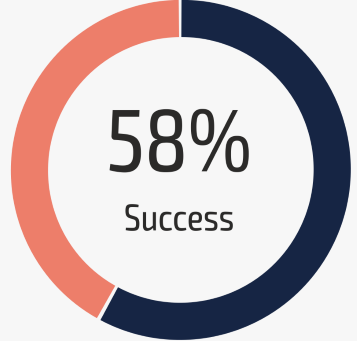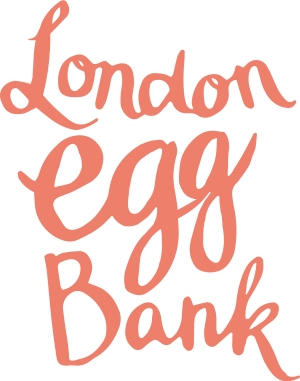What is Egg Sharing?
How does it work?
The IVF with Egg Sharing
Eligibility checks
You’ll be invited to the clinic for a fertility assessment with one of our consultants. This involves a blood test for AMH, semen analysis (if needed) a scan and a doctor consultation to review your result and medical information for you and your partner (if applicable). This will help assess your current fertility health and your suitability for egg sharing.
Initial consultation
Consent forms and screening
Matching to an egg recipient
Getting ready for egg collection
Egg collection
Fertilization
Using frozen embryos
Using fresh embryos
IVF pregnancy
WHO IS ELIGIBLE FOR EGG SHARING?
To be eligible for egg sharing you need to meet the following criteria set out by the Human Fertilisation & Embryology Authority (HFEA) and London Egg Bank:
You should be:
You shouldn’t have:
What our patients say

Egg survival rate

Cumulative pregnancy rate after one embryo transfer from a single cohort of frozen eggs

Cumulative pregnancy rate after two embryo transfers from a single cohort of frozen eggs
Success Rates
We have one of the highest numbers of egg freezing and thawing cycles with frozen eggs in the UK. We manage the egg-freezing process from start to finish to ensure the highest quality of eggs. As a result of our consistent and reliable approach, many healthy babies have been born through frozen eggs. Our success rates show you our focused approach really works.
Prices
IVF with Egg Sharing
- Administration and coordination
- Egg-sharing screening blood tests
- Partner blood test
- Medication (until the embryo transfer)
- Follicular tracking scans
- Cycle monitoring blood tests
- Surgical egg collection procedure
- Preparation and culture of eggs and sperm
- ICSI
- Time-lapse imaging
- Embryo glue
- One fresh embryo transfer
- One bhcg pregnancy blood test
- One viability scan for pregnancy
- Review consultation in the event of a negative outcome
- Counselling session
Egg Sharing
Read more

Alice’s Story

Why Do Women Freeze and Share Their Eggs?
Put your fertility on hold
Get Started
You can request more information or book a free consultation with our Treatment Coordinator. This initial consultation is part of the treatment process and will guide you through each step, answer your questions, and help you explore all your options.
Select Booking Slot
Choose your preferred date below:
Your Appointment Has Been Booked
Your slot is:
Thank you for booking with us.



